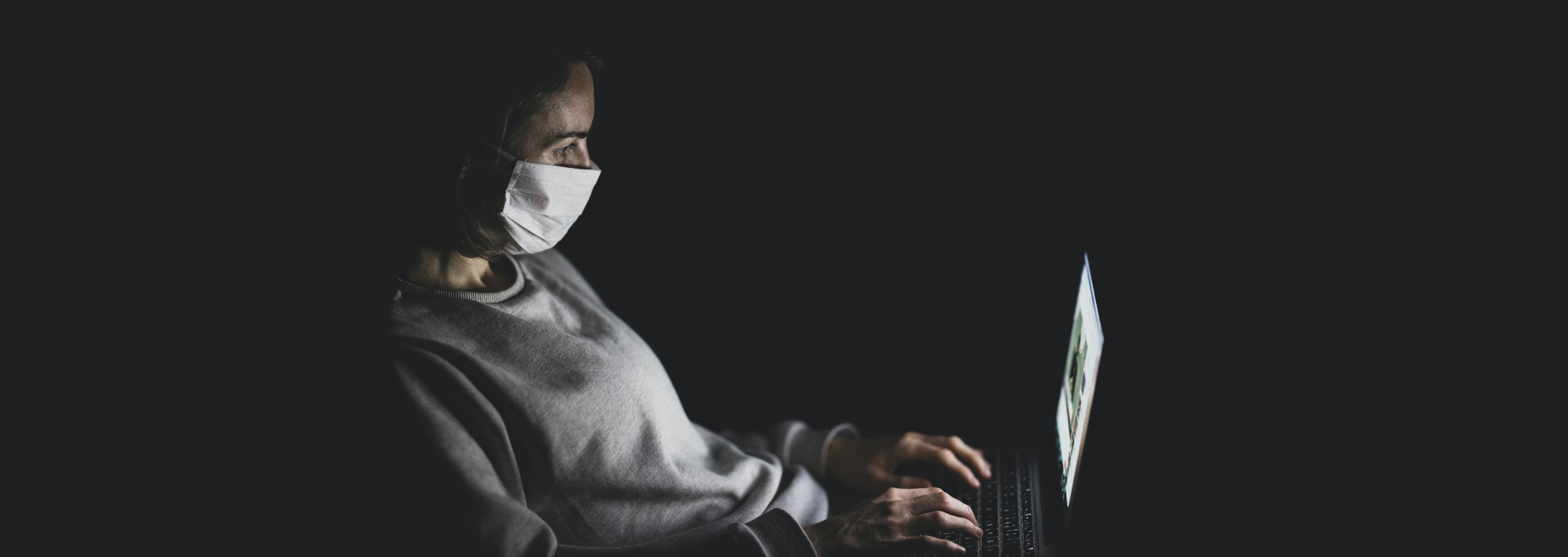
Not everyone is interviewing under optimal conditions right now. Photo by Engin Akyurt from Pexels
During the coronavirus crisis, interviewers need to double down on finding the candidate’s strengths. In my first post, one of the principles I laid out was:
The skills a candidate demonstrates in the interview must match the requirements of the job.
That principle has always been important, but it applies in new ways during the age of remote interviews. In particular, people have been thrust forcibly into a new work style while juggling family and the uncertainty of the coronavirus pandemic. It’s crucial that interviewers recognize no one is working under optimal conditions.
Let’s take three areas where interviewers need to update their evaluation criteria. As an added benefit, the same evaluation criteria can reduce bias and enable hiring more diverse team members.
A lack of proper equipment
Many people have been forced into working from home, leaving them without a good microphone or webcam, adequate lighting or an isolated space to work. Luckily, most home computers have passable microphones and webcams, so you shouldn’t have to worry about basic communication. But as candidates will be worried about presenting themselves as positively as possible, it’s important to assure—and reassure—them technical issues like bad video quality or poor lighting are not part of the evaluation.
You might think: if your organization heavily uses video conferencing, won’t this affect this person’s ability to perform their job? Well, if you hire them, you would buy them the necessary equipment, right? (See question 9 of the Joel Test.)
Being accepting of technical difficulties also helps those breaking into the tech industry for the first time, as these are exactly the people who may not yet have the money to set up a proper remote work environment.
Family and kids
Kids appearing in the frame while people are trying to video conference has become commonplace, like in the viral video of a BBC News interview. Just like we have to allow for people’s home lives to seep into their work lives, we have to allow for that during interviews.
Dealing with family at home also means being more flexible about timing, as parents are often trading off childcare responsibilities throughout the day. The truth is that some people, especially women, have dealt with juggling work and the caretaker role. Recognizing family is as important as work gives people from many walks of live access to meaningful employment.
Stress
The coronavirus pandemic is certainly a time of uncertainty, and that doesn’t help with interviews. Be aware of heightened stress, and really make it a priority to make the candidate feel comfortable. This is a whole topic on its own, but as a summary, be clear with your expectations and help them showcase their strengths.
And as usual, interview stress is only increased during this time, but it’s a problem even without a pandemic. So, think about how you can make the candidate comfortable, no matter the interview circumstances. As I said in my last article, “the best candidate for the job may be one who’s feeling the most stress.”
It’s important to separate determining technical and cultural fit from a candidate’s home environment. The unique circumstances of the current pandemic make this especially important now, but the dirty secret is the same issues have always affected qualified candidates. Candidates didn’t always have a proper setup to interview on, many already had to deal with demanding family circumstances, or they simply faced more interview nerves than others.
Now is the time to recognize these biases, correct for them, and most importantly, carry forward the lessons even after the pandemic subsides.